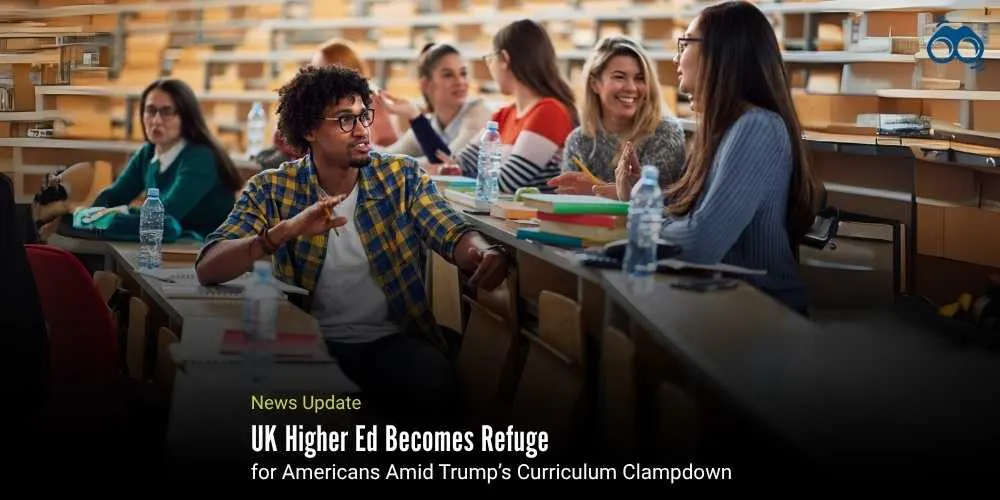UCAS Reports Historic 14% Spike in U.S. Applications for Autumn 2025 Intake
American Students Turn to U.K. Institutions as DEI Initiatives Face Rollback at Home
American student applications to UK universities have seen an unprecedented surge, attracting significant attention from academics and policymakers. This trend is largely viewed as a response to the initial policies of the Trump administration, which took a notably conservative approach to higher education. Controversial actions included pressuring states and academic institutions to dismantle diversity, equity, and inclusion (DEI) initiatives and attempts to control university curricula.
Consequently, many U.S. students began seeking academic environments abroad that uphold pluralistic values and embrace global perspectives, ideals they increasingly feel are under threat within their home country. In this context, the U.K.’s renowned institutions and reputation for intellectual freedom have emerged as a compelling alternative for those in search of both academic rigour and inclusivity. Observers have pointed to President Trump’s confrontations with universities such as Harvard, coupled with threats to withdraw federal funding and revoke tax-exempt status, as key factors driving this trend. Supporting this view, UCAS data revealed 7,930 applications for the autumn 2025 intake, a nearly 14% increase over the previous year, and the highest figure since records began in 2006.
Moreover, enrollment figures indicated a 19% rise in U.S. students paying deposits to U.K. universities compared to the previous year. Notably, the University of St Andrews, which accommodates around 10% of American students studying in the U.K., experienced a 14% growth in applications. According to Cara Skikne of Studyportals, concerns surrounding freedom of expression in the U.S. have prompted more American students to look abroad, as many feel increasingly unwelcome in their domestic institutions.
In contrast, Studyportals reported a dramatic decline in global interest in U.S. higher education, with pageviews for American courses falling by 50% in early 2025, the lowest point since the COVID-19 pandemic. Nevertheless, despite the former administration’s stricter visa and immigration policies, Education Secretary Linda McMahon expressed ongoing support for transatlantic exchange, emphasising the U.S.’s continued commitment to welcoming British students. As educational values diverge, a growing number of American students are choosing to study in the United Kingdom in pursuit of academic freedom and a more inclusive learning environment.
Editor’s Note:
The recent rise in American student applications to U.K. universities reflected how politics is changing the way students think about higher education. The numbers suggest that many young people in the U.S. are feeling uneasy about what’s happening at home, especially when it comes to values like diversity, academic freedom, and global connection. Early in Trump’s presidency, cuts to diversity and inclusion programs and interference in university curricula raised concerns in academia. This pushed some students to seek universities that prioritise openness and intellectual freedom. British universities, known for their strong academic reputation and independence, have become a popular choice for studying without political pressure. Record applications for autumn 2025 (7,930) and increased deposits at top universities like St Andrews indicate a lasting shift. Many students are choosing the U.K. due to concerns about the direction of U.S. education, beyond personal goals. This trend prompts larger questions about the societal role of universities. Beyond being centres of learning, universities are crucial for safeguarding democratic values. It is therefore understandable that students, perceiving these values to be under threat, seek them elsewhere.
As per Skoobuzz, this phenomenon extends beyond students merely studying abroad; it reflects a broader search for educational environments that promote openness, inclusion, and independent thought.














0 Comments (Please Login To Continue)